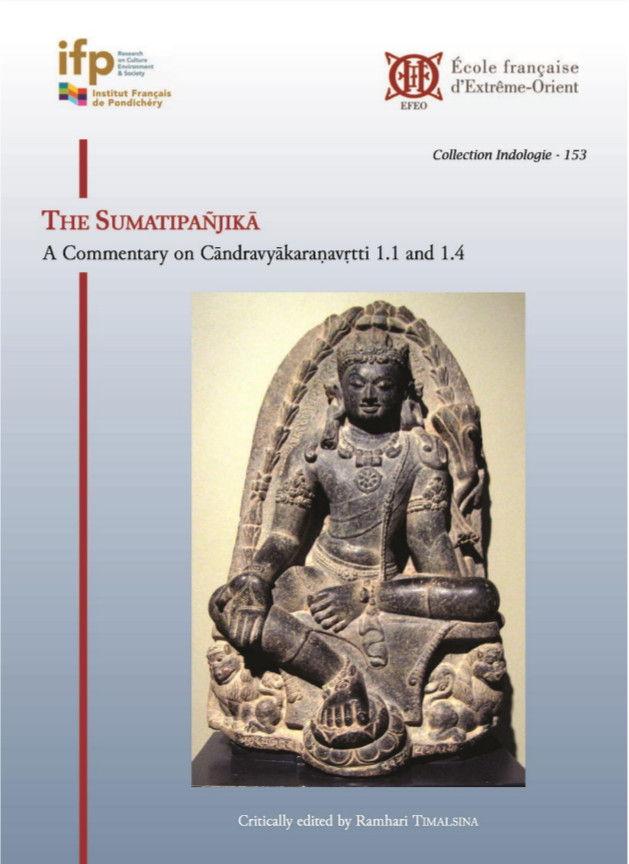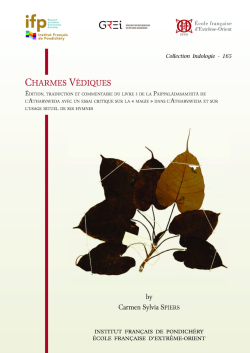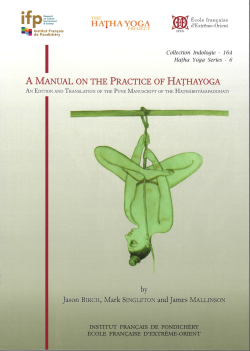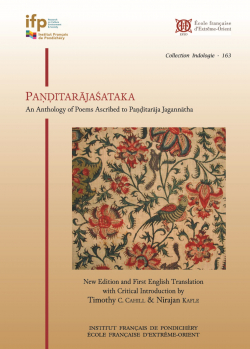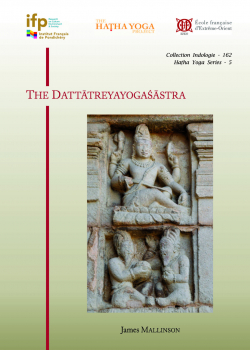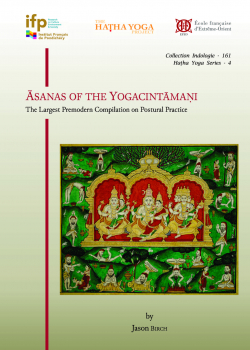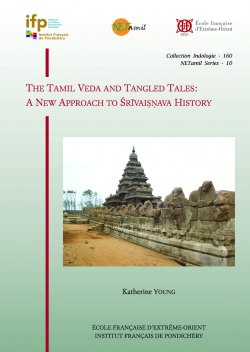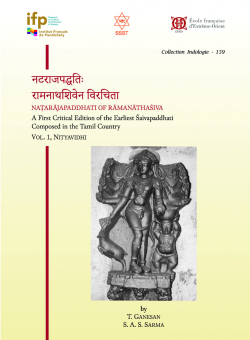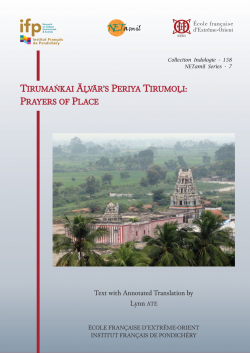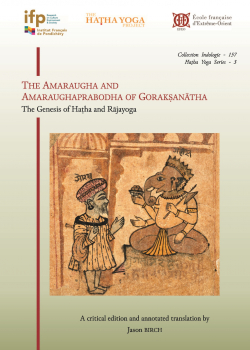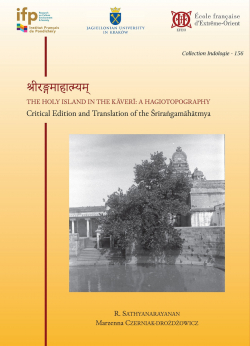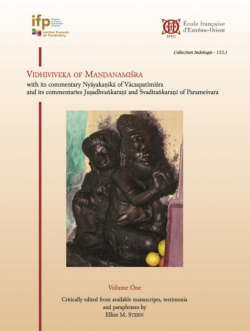The catalog of EFEO Publications includes works on a wide range of disciplines in the humanities and social sciences (archaeology, history, anthropology, literature, philology, etc.), centered on Asia, from India to Japan.
These publications address both specialists, and a wider public interested in Asian civilizations and societies.
The Sumatipañjikā
A Commentary on Cāndravyākaraṇavṛtti 1.1 and 1.4
Collection : Collection Indologie
Collection's number: 153
Editor: Ramhari Timalsina
Edition: EFEO, Institut français de Pondichéry (IFP)
Publication date: 2022
Status : Available
40,00 €
ISBN-13 : 9782855392592
ISSN : 0073-8352
Width : 17 cm
Height : 24 cm
Weight : 0.8 kg
Number of pages : 444
Distributor : EFEO Diffusion, EFEO Pondichéry Contact : shanti@efeo-pondicherry.org
Geography : India
Language : English, Sanskrit
Place : Pondichéry
Support : Papier
Description :
24x17, XX+424 p., English, Sanskrit, paperback
Collection Indologie n˚153
ISBN number (IFP) : 978 81 8470 245 3
Abstract
The history of Sanskrit grammar has largely been dominated by the work of Pāṇini and his followers, while the history and contributions of other Sanskrit grammatical schools remain under their shadow and are little known. The present work, a first critical edition of two extracts from the Sumatipañjikā (1.1 and 1.4), a commentary by the Buddhist author Sumati (10th cent.) on the grammatical work of Candragomin, founder of the eponymous Cāndra school of grammar, goes some way to filling in this gap. The text, presented in a critical edition followed by a diplomatic one, is based on three manuscripts (two from Nepal and one from Bengal) dating from between the 15th and 16th centuries and written in Newari script. The edition is prefaced by an introduction that discusses the history of the Cāndra school of Sanskrit grammar and considers how Cāndra grammar was kept alive in the regions of Nepal and Tibet, in dialogue with the Pāṇinian school.
Table of contents
Notes
You may also order this title from our centre in Pondicherry at the following address:
library@efeo-pondicherry.org
Or, from the French Institute in Pondicherry at the following address:
library@ifpindia.org
Orders for delivery to India have to be placed with our centre in Pondicherry or the French Institute in Pondicherry.
About the editor
Ramhari Timalsina
Ramhari Timalsina has taught linguistics at Tribhuvan Uni-versity (2004-2008) and Sanskrit grammar at Mahendra Sanskrit University (2009-2014). In 2014, after working as a researcher in the Nepalese-German Manuscript Catalo-guing Project (NGMCP) for a dozen years, he enrolled at Göttingen University for doctoral studies. Since 2018, he has been working at the Heidelberg Academy of Sciences and Humanities as a research associate.
Related books
Collection Indologie
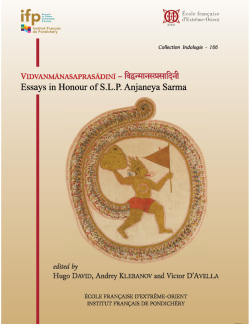
Vidvanmānasaprasādinī
S.A.S. SARMA, Dominic GOODALL, Harunaga ISAACSON, Suganya ANANDAKICHENIN, Hugo DAVID, Kei KATAOKA, Victor D’AVELLA, Giovanni CIOTTI, Andrey KLEBANOV, Émilie AUSSANT, Maria Piera CANDOTTI, Tiziana PONTILLO, Sibylle KOCH, Vincenzo VERGIANI, Timothy C. CAHILL, Somedeva VASUDEVA, Luther OBROCK, M. VINOTH, Maṇi DRĀVIḌA, Akane SAITO, Alex WATSON, Daniele CUNEO, Yūto KAWAMURA
60,00 €
2026
• Available
